
|
Two BMS Alumni receive Berlin’s Tiburtius awards 2020We are delighted to announce that two alumni of the Berlin Mathematical School (BMS) were among this year's Tiburtius award winners for their excellent dissertations. Josué Tonelli Cueto received the third prize for his dissertation on "Condition and Homology in Semialgebraic Geometry". He completed his PhD under the joint supervision of Peter Bürgisser and Felipe Cucker (City U Hong Kong) and graduated from TU Berlin in 2019 with summa cum laude.
Marcin Lara, who graduated in 2019 from Freie Universität Berlin was awarded the recognition prize for his dissertation on "Homotopy Exact Sequence for the Pro-Étale Fundamental Group" under the supervision of Hélène Esnault. Each year, the State Conference of Rectors and Presidents of Berlin's Universities (Landeskonferenz der Rektoren und Präsidenten der Berliner Hochschulen LKRP) awards three prizes and three recognition awards to doctoral students at Berlin universities for outstanding dissertations. The prize is named after Professor Joachim Tiburtius, who was Senator for Education in Berlin from 1951 to 1963. Information about the Tiburtius Prize. Eligible for nomination are the professors of Berlin universities. Press announcement (in German) Call for Application: BMS Dirichlet Postdoc FellowshipThe Berlin Mathematics Research Center MATH+ and the Berlin Mathematical School (BMS) invite applications for the Dirichlet Postdoc Fellowship starting in Fall 2023. This two-year position is open to promising young mathematicians who will have completed their PhD degree by 30 September 2023 and want to pursue their own research in one of the eight broad research areas of mathematics covered by the Berlin Mathematical School. The competitive full-time salary includes health insurance. Fellows are expected to teach one semester course per year, typically in English at the graduate level. Applications from well-qualified individuals, especially women, are highly encouraged. Application deadline: 1 December 2022 (23:59:59, Berlin time, UTC +1 hour) Jürg Kramer New BMS ChairJürg Kramer, professor of mathematics at Humboldt-Universität zu Berlin (HU), is the new chair of the Berlin Mathematical School (BMS). Kramer took up his post on 13 November 2020 in accordance with the rotating chairmanship, and succeeds John M. Sullivan of Technische Universität Berlin (TU). The general assembly of MATH+ members unanimously elected Christof Schütte of Freie Universität Berlin (FU) as the new MATH+ chair, and approved his new board members. Among them the new BMS chair. During the first meeting of the MATH+ Board the new composition of the BMS Committee was agreed upon. The new BMS deputy chairs are Holger Reich, professor of mathematics at the FU, as the new BMS deputy chair to represent Freie Universität Berlin. He will carry out his duties alongside John M. Sullivan, the BMS deputy chair from Technische Universität Berlin (TU). The rotational change of the BMS chairmanship occurs every two years between the three participating universities in sync with the election of the new MATH+ chair. Kramer studied mathematics in Basel, where he also completed his PhD. After holding positions at the University of Bonn, Harvard University, the University of Wuppertal and ETH Zurich, he took up his current position at HU in 1994. His research interests include Arakelov geometry, theory of automorphic forms, especially modular forms and mathematical education. Everyone at the BMS would like to extend sincere thanks to John M. Sulivan for his hard work and outstanding commitment as the BMS Chair over the past two and a half years, and we would like to give his successor, Jürg Kramer, a very warm welcome! BMS Phase II Student receives a student travel awardBMS Phase II Student Martin Hanik received a MICCAI Student Travel Award for the paper "Nonlinear Regression on Manifolds for Shape Analysis using Intrinsic Bézier Splines" (co-authors: Christoph von Tycowicz, Hans-Christian Hege) that has been produced in the framework of the MATH+ research project EF2-3 (Spline Models for Shape Trajectory Analysis). The prize is awarded for the highest scored papers with a young researcher as the first author. The annual MICCAI is the leading international conference for computer assisted medicine.
Sources:
Two BMS alumni receive the EMS Prize 2020Every four years, during the European Congress of Mathematics, the European Mathematical Society awards 10 EMS Prizes, the Felix Klein Prize and the Otto Neugebauer Prize. All prize winners are usually announced at the Opening Ceremony at the beginning of the congress. Unfortunately, this year the tradition called for an alternative. The 10 EMS Prizes are awarded “to young researchers not older than 35 years, of European nationality or working in Europe, in recognition of excellent contributions in mathematics.” The 10 EMS Prizes are funded by Foundation Compositio Mathematica and EMS Press. Maryna Viazovska is a full professor at the École Polytechnique Fédérale de Lausanne in Switzerland. Previously, she was a postdoctoral researcher at the Berlin Mathematical School and the Humboldt University of Berlin (Dirichlet Postdoc 2013-2016) and a Minerva Distinguished Visitor at Princeton University. Her research interests include number theory and optimal configurations on manifolds. Karim Alexander Adiprasito was a member of BMS, first as a PhD student at TU Berlin (2010-2013) and then at FU Berlin. Currently, he is a Professor at the University of Copenhagen and the Hebrew University of Jerusalem. He works in the field of combinatorics, but combines methods from algebra, geometry and topology in innovative ways, solving problems in a wide range of areas. BMS Alumnus receives Tiburtius recognition awardBMS alumnus Mark James Curran was recognized for his scientific achievement by the 2019 State Conference of Rectors and Presidents of Berlin Universities (Landeskonferenz der Rektoren und Präsidenten der Berliner Hochschulen). Mark was honoured with a Tiburtius recognition award for his doctoral dissertation entitled "The hysteretic limit of a reaction-diffusion system with a small parameter“. His PhD established the equivalence of a broad class of mathematical models for ensembles of biological organisms, and has many applied and theoretical implications for scientists working in the field. Mark completed his PhD under the supervision of Pavel Gurevich and graduated from FU Berlin in 2018 with summa cum laude. Mark is now an analyst and software engineer in an American company in Berlin. His award came with prize money in the sum of 500 euros. The State Conference of Rectors and Presidents of Berlin Universities (LKRP) annually awards three Tiburtius Prizes and three awards of recognition to recent PhD graduates from Berlin's universities for their outstanding doctoral theses. The prize-giving ceremony was held at TU Berlin on 19 December 2019. Many congratulations to Mark!
Fruitful Second BMS – BGSMath Junior Meeting in BerlinThe second Junior Meeting of the BMS and the Barcelona Graduate School of Mathematics (BGSMath) took place in Berlin from 26 to 28 June 2019. In total, 17 participants from Barcelona and 25 from Berlin joined the event. The Junior Meetings were launched with a first meeting in Barcelona in October 2017 to create strong scientific exchange, strengthen research collaboration between the respective math communities, and enhance the multicultural environment of both graduate schools. The second Junior Meeting now aimed to intensify current collaborations and create new links between the two schools. In their opening remarks, BMS Deputy Chair Prof. Dr. Jürg Kramer and BGSMath Director Prof. Dr. Marta Sanz-Solé restated their common goal of striving for excellence in their doctoral and postdoctoral training programs. They also emphasized the importance of networking and of creating diverse frameworks for lively exchange. The three-day scientific program provided a wealth of interesting half-hour talks by 18 doctoral students and postdocs from the two schools. Mario Kummer (TU Berlin), Albert Mas-Blesa (Universitat Politècnica de Catalunya), and Thomas Krämer (HU Berlin) gave one-hour talks as plenary speakers. The thematic focus was on three main areas: “With so many areas of mathematics represented, the participants were able to learn about what their colleagues outside of their own research areas are working on and to see connections between different fields”, summarized Tal Orenshtein and Andrew Newman from the organizing committee. “The coffee breaks, the Welcome Reception in the BMS Lounge, and the Conference Dinner made lively exchange and discussions about maths and beyond possible.” The meeting was organized by a committee of postdocs from the two institutes: Joan Bosa and Marina Gonchenko (both from BGSMath), Jean-Philippe Labbé, Andrew Newman, and Tal Orenshtein (all from the BMS), and chaired by Prof. Kramer and Prof. Sanz-Solé. In 2016, a memorandum of understanding was signed by both graduate schools in order to boost collaborative work between young researchers from both institutions. The schools declared their intention to cooperate together in initiatives aimed at promoting the mobility of and exchange between students and faculty members by way of events such as the Junior Meeting; joint summer schools; mutual visits by advanced students and postdocs of each institution; and other scientific activities. BMS welcomes student delegation from Atlanta
This event was part of the STEM LAUNCH Study Tour of Germany organized by Cultural Vistas, a non-profit organization that facilitates connections between American and international students, academics and professionals. Through a two-week professional and cultural tour of Berlin and Munich, this study tour aims to encourage students from Georgia-based historically black colleges & universities to consider adding an international context to their educational and career paths.
ERC Advanced Grant for Gavril Farkas
Farkas is considered one of the world’s leading experts in the field of algebraic curves. He achieved a breakthrough in his research by using new methods inspired from topology to prove Green’s conjecture about equations of algebraic curves. Farkas' research proposal "Syzygies, moduli and topological invariants of groups" won him one of the prestigious ERC Advanced Grants, which are considered the most important European awards for outstanding researchers. This lucrative grant will assist the top researcher in his scientific endeavours, and will also create new jobs as he can employ postdocs, PhD students and other staff for his new research team. Farkas will use the funding to continue to investigate the idea of connecting the different fields of algebra and topology. Farkas is a Hungarian mathematician born in Transylvania and got his PhD in 2000 at the University of Amsterdam under the supervision of Gerard van der Geer. After positions at the University of Michigan, Princeton University and the University of Texas, Farkas took up a full professorship at the HU Berlin in 2007. His other awards and grants include the DFG Project "Syzygien und Moduli", the Ad Astra Prize for Excellence in Scientific Research, an Alfred P. Sloan Research Fellowship, and two National Science Foundation Research Grants. Congratulations Gavril! The ERC is a public body that was established in 2007 for the purpose of funding scientific and technological research conducted within the EU. Applications for grants are assessed by qualified external experts and the aim is to recognise the best ideas, and to confer status and visibility to the best research in Europe. ERC Advanced Grants are given to support the implementation of particularly innovative research projects. Demand for these grants is extremely high and, of the 2052 research proposals submitted to the ERC in the current round, only 11% were selected for funding. Written by S. E. Sutherland-Figini GAMM prizes for BMS Alumni
|


















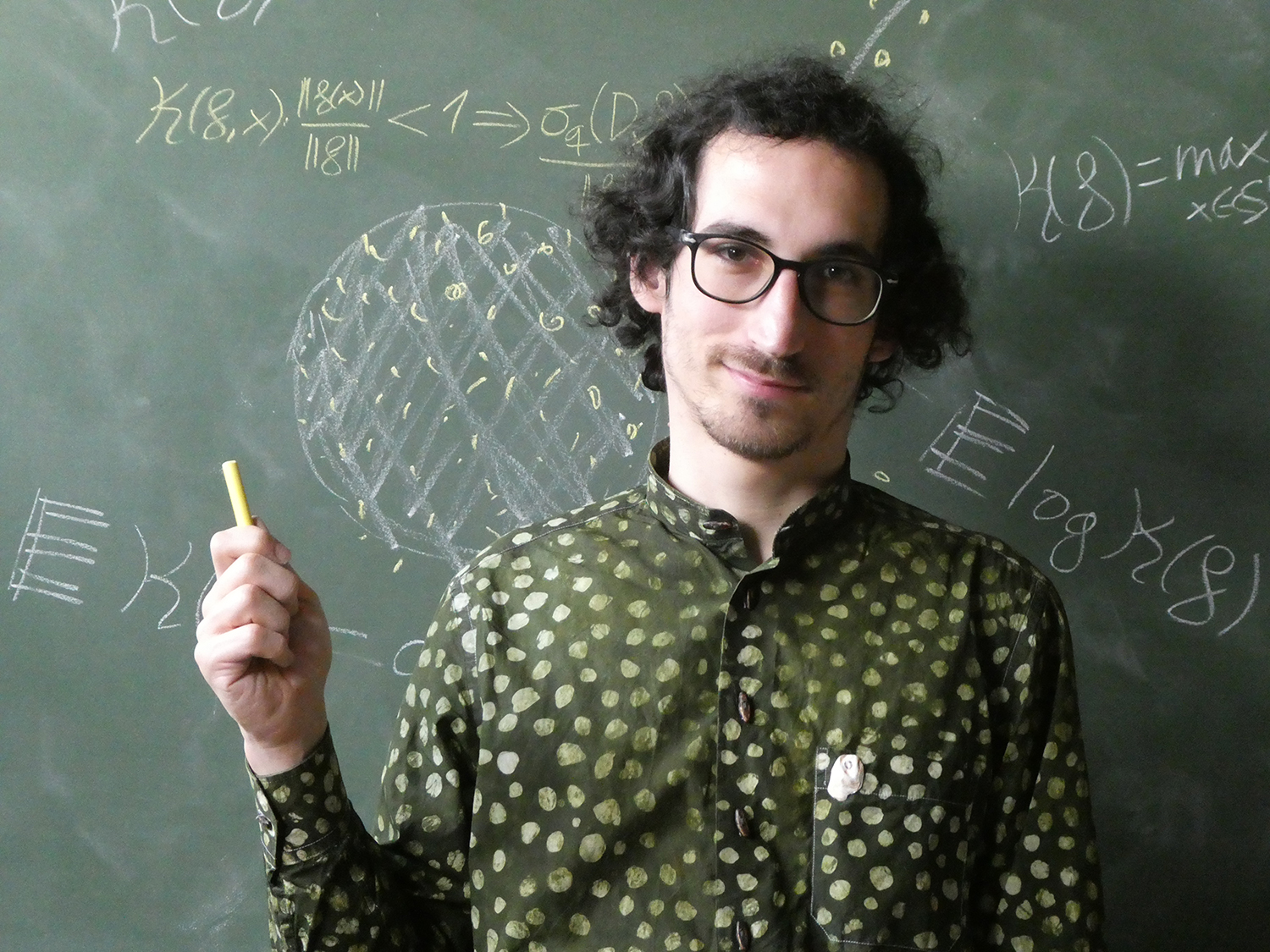
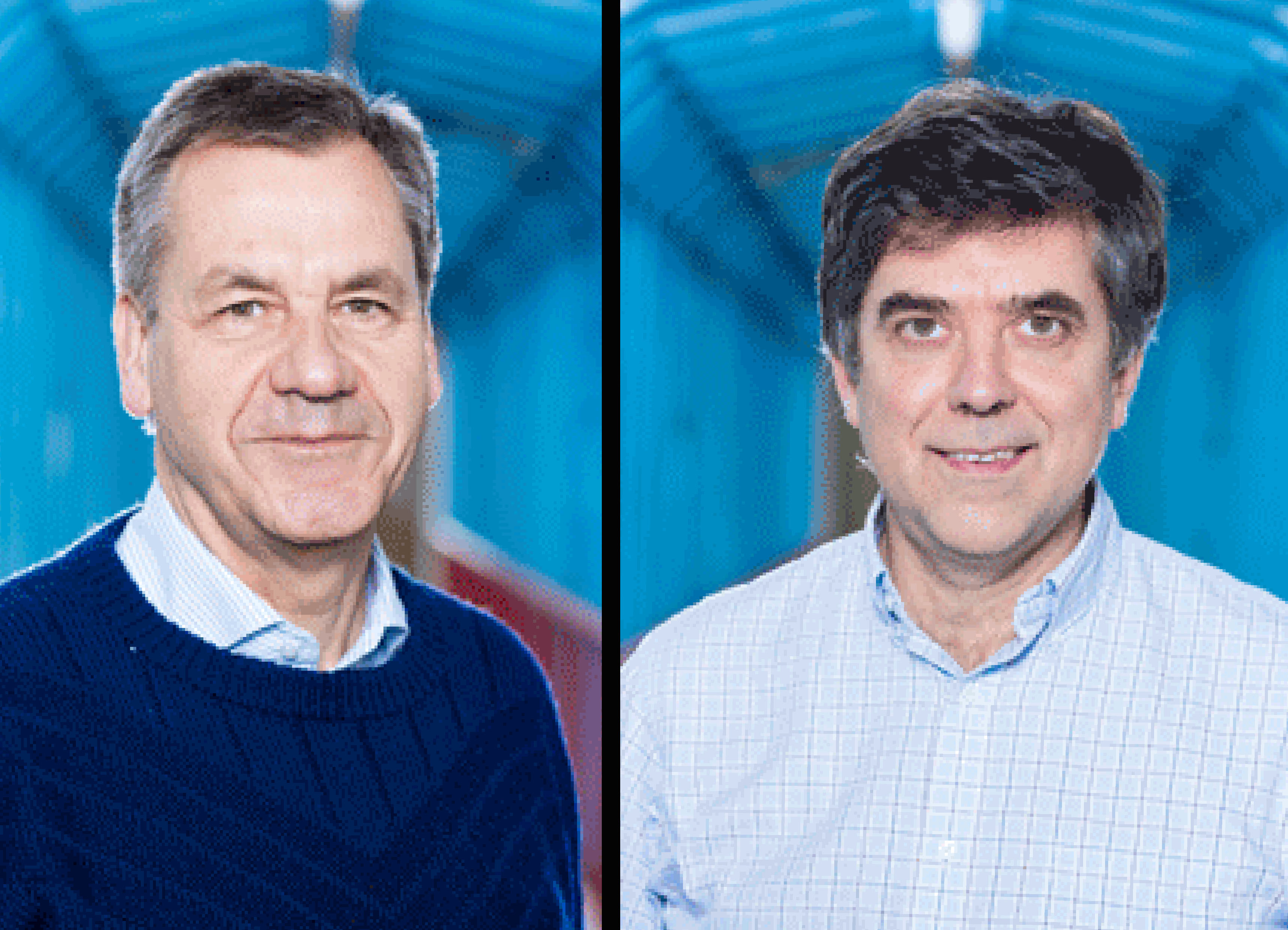
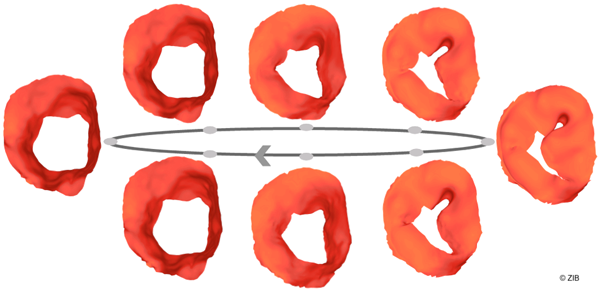
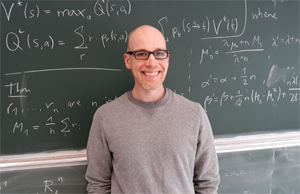
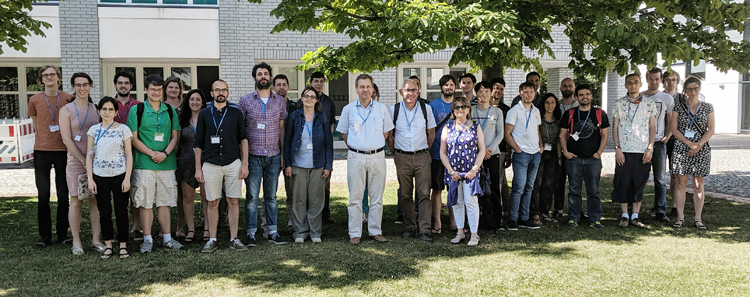
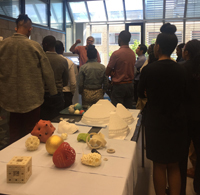 On Thursday 23 May 2019, the BMS welcomed a delegation of 23 undergraduate students and one faculty member from two American universities situated in Atlanta, Georgia. This event aimed to give the visiting students and faculty a chance to connect with their counterparts in Germany, and gain first-hand exposure to prospective careers and research opportunities in the field of mathematics. BMS and MATH+ Managing Director, Nadja Wisniewski began by giving a presentation about the BMS and its PhD Program in the framework of the newly founded Cluster of Excellence MATH+ which can be regarded as a good representative of the mathematics landscape in Berlin in general. This was followed by a talk from BMS student Sophia Elia, who presented her own research project.
On Thursday 23 May 2019, the BMS welcomed a delegation of 23 undergraduate students and one faculty member from two American universities situated in Atlanta, Georgia. This event aimed to give the visiting students and faculty a chance to connect with their counterparts in Germany, and gain first-hand exposure to prospective careers and research opportunities in the field of mathematics. BMS and MATH+ Managing Director, Nadja Wisniewski began by giving a presentation about the BMS and its PhD Program in the framework of the newly founded Cluster of Excellence MATH+ which can be regarded as a good representative of the mathematics landscape in Berlin in general. This was followed by a talk from BMS student Sophia Elia, who presented her own research project.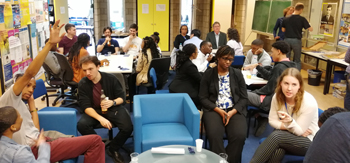 The delegation then visited the TU Berlin's 3D LAB. Afterwards, the American students and faculty were given the chance to interact informally with BMS students, faculty and staff over lunch in the BMS Lounge.
The delegation then visited the TU Berlin's 3D LAB. Afterwards, the American students and faculty were given the chance to interact informally with BMS students, faculty and staff over lunch in the BMS Lounge.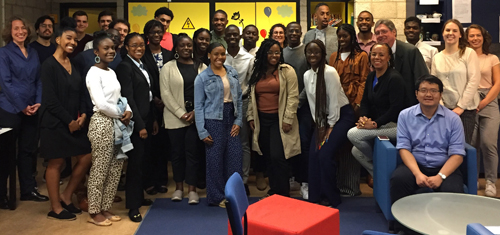
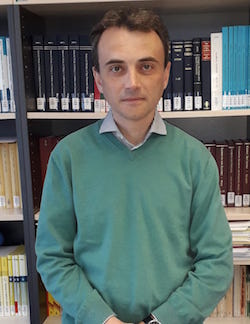 Prof. Dr.
Prof. Dr. 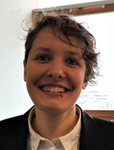 BMS alumni members Friederike Hellwig and Dietmar Gallistl were recently recognized for their outstanding academic achievements by
BMS alumni members Friederike Hellwig and Dietmar Gallistl were recently recognized for their outstanding academic achievements by 

